Page 4 • (3,632 results in 0.043 seconds)
-

TACOMA, WASH. (June 28, 2016)- There were lots of tears as band members from Tamana Girls High School in Japan said farewell to their new friends from Graham-Kapowsin High School, located about 13 miles southeast of Pacific Lutheran University. Miho Takekawa, percussion instructor at PLU…
said. “We learn from each other,” she said. “That’s very special to witness. I can see both sides learning so much.” The partnership is ongoing, going into Takekawa’s 10th year teaching at PLU. She said the plan is to continue to grow and strengthen that partnership. In January 2017, Gerhardstein will use a grant from the Wang Center for Global and Community Engaged Education to conduct a music research project in Japan, she noted. Takekawa will accompany him, as well as a couple of students from G
-
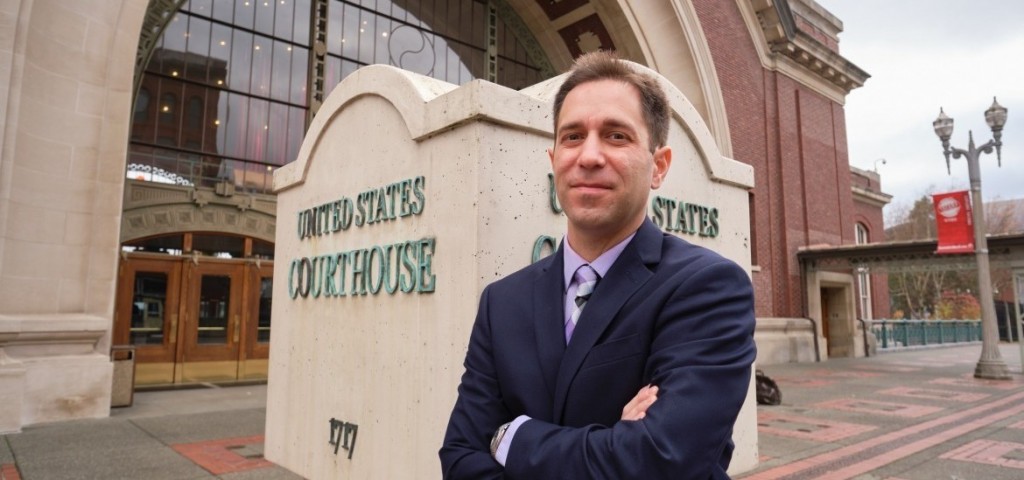
When Jordan Levy first visited Honduras in high school, he had no idea that someday he’d be serving as an expert witness on Honduras in the U.S. court system. He first visited the Central American nation to perform volunteer work, and then returned annually throughout…
Jordan Levy: Anthropology and a Just Society Posted by: Zach Powers / November 15, 2019 Image: Professor Jordan Levy in front of the Federal Courthouse in Downtown Tacoma. (Photo: John Froschauer/PLU) November 15, 2019 By Lora ShinnGuest Writer for Marketing & CommunicationsWhen Jordan Levy first visited Honduras in high school, he had no idea that someday he’d be serving as an expert witness on Honduras in the U.S. court system.He first visited the Central American nation to perform volunteer
-
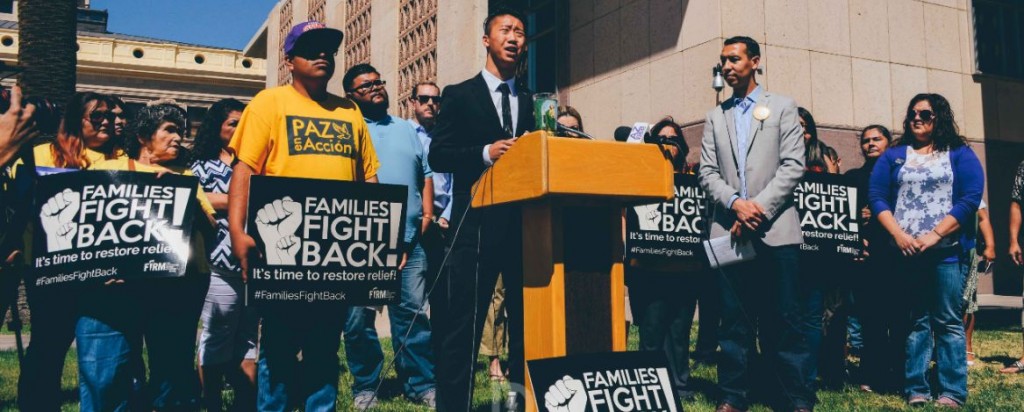
third-year law student with employment lined up after graduation, an activist philanthropist and an upstanding community member, Kim checks all the “American” boxes. Except for one: actually being a legal citizen. Kim is one of the approximately 800,000 Deferred Action for Childhood Arrivals recipients in the United States. DACA grants temporary visas to young people who arrived in the United States with their parents as undocumented immigrants. While Kim might not be an American legally, he is
-
, D.C., and was then completing a master’s of communication, also from American. For nearly 10 years, he’d worked in banking, marketing, and finally public relations. “I didn’t like it, I certainly didn’t hate it,” Wells, associate professor of communication, mused recently during a break from sabbatical work on a certificate in documentary studies at Duke University. “But I came home at the end of each day and asked, ‘What have I really accomplished today?’” That question began to gnaw at Wells
-
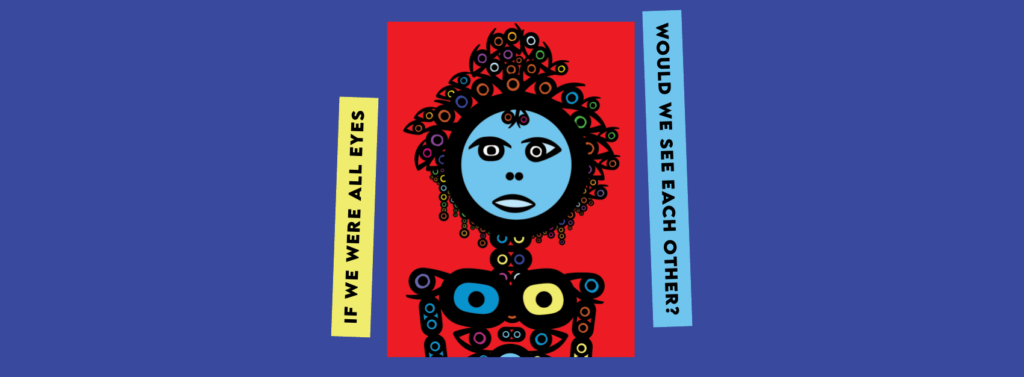
Intersections: Called and Empowered (and Assessed) Posted by: abryant / April 29, 2022 April 29, 2022 Cover art If we were all eyes, could we see each other? by Vickie R. Phipps Intersections, Number 54, Fall 2021Intersections is a publication by and largely for the academic communities of the twenty-seven institutions that comprise the Network of ELCA Colleges and Universities (NECU). Each issue reflects on the intersection of faith, learning, and teaching within Lutheran higher education. It
-
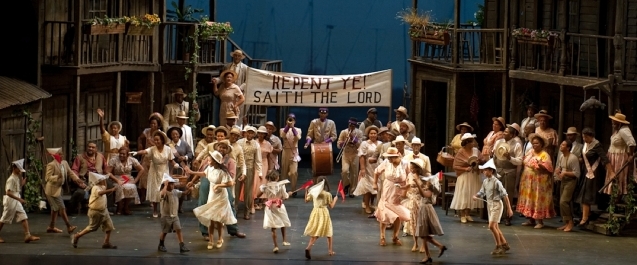
who is pictured in the middle, took the stage this summer for Seattle Opera’s production of ‘Porgy and Bess.’ (Photo courtesy of the Seattle Opera) Amy Van Mechelen ’08 had just finished up her master’s degree in music at Colorado State University and had moved back to the Tacoma area. She auditioned for the chorus of Porgy and Bess,and didn’t think she’d get a part. But she did. And she was surprised by how much work the chorus had on stage.“The chorus is on the stage almost all the time and is
-
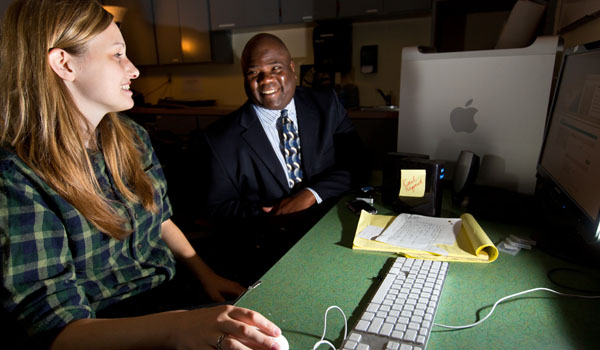
impressive set of credentials, with a bachelor’s of general studies from American University in Washington, D.C., and was then completing a master’s of communication, also from American. For nearly 10 years, he’d worked in banking, marketing, and finally public relations. “I didn’t like it, I certainly didn’t hate it,” Wells, associate professor of communication, mused recently during a break from sabbatical work on a certificate in documentary studies at Duke University. “But I came home at the end of
-

all just help each other and provide that community for those of us who know what we’re all going through. What would you say the club culture is like? Our club is a bit more reserved. Most of our communication comes from discord, but it’s more of a matter that we know that we’re there for each other and help out when needed. How would you like to see the club grow in the future? I’d like to see more events, like panel discussions, maybe movie nights. I’d love to see the club expand and grow
-

a thing that we all have in common, which is our disabilities. So it’s something we can all relate to each other with and understand. It becomes a space where we can all just help each other and provide that community for those of us who know what we’re all going through. What would you say the club culture is like? Our club is a bit more reserved. Most of our communication comes from discord, but it’s more of a matter that we know that we’re there for each other and help out when needed. PLU
-
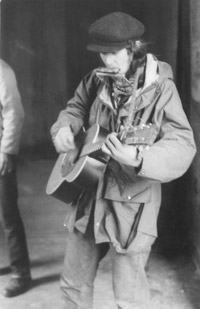
of all I wanted be an astronomer. Dad was a physicist. I grew up with telescopes and I still read Scientific American every month. I still follow that stuff avidly,” Youtz says. “I wanted to be a philosopher, I wanted be a historian, I love anthropology, of course I have no formal training in any of these. “Music just kept pulling me back.” “My music is essentially dramatic, it’s story telling. Because I’ve spent so much time doing so many different things, I’ve spent a lot of time thinking about
Do you have any feedback for us? If so, feel free to use our Feedback Form.


